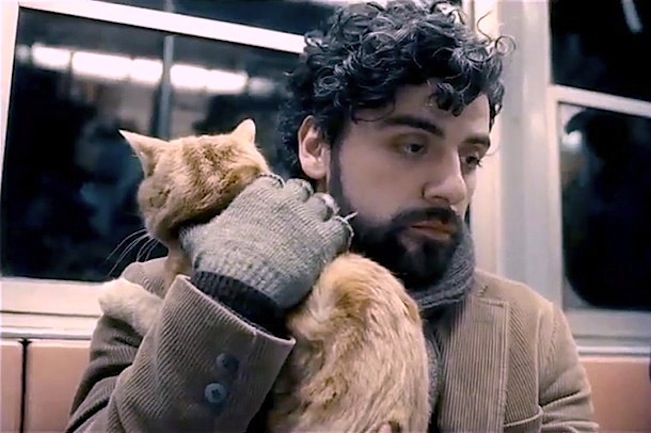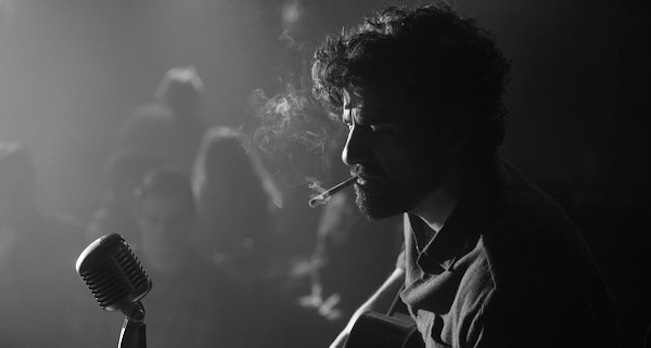By Jake Howell jake.howell@utoronto.ca
Countdown to Cannes: Joel Coen, Ethan Coen
JOEL AND ETHAN COEN
Background: American; born St. Louis Park, Minnesota, 1954 (Joel) and 1957 (Ethan).
 Known for / style: Miller’s Crossing, Barton Fink, Fargo, The Big Lebowski, No Country for Old Men; dark and dry humor, crime narratives and kidnapping plots, genre hybrids, working with a repertory including Steve Buscemi, John Turturro, Frances McDormand, John Goodman, George Clooney, Jon Polito.
Known for / style: Miller’s Crossing, Barton Fink, Fargo, The Big Lebowski, No Country for Old Men; dark and dry humor, crime narratives and kidnapping plots, genre hybrids, working with a repertory including Steve Buscemi, John Turturro, Frances McDormand, John Goodman, George Clooney, Jon Polito.
Notable accolades: Over the past three decades, the Coens have achieved a number of awards from the highest honors in the industry, having won both the Oscar for Best Picture (2007’s No Country for Old Men) and the Cannes Palme d’Or (1991’s Barton Fink). In a combined total, the pair own over 150 titles (including four Oscars apiece). At Cannes, Joel has won three Best Director awards (1991’s Barton Fink, 2001’s The Man Who Wasn’t There, and 1996’s Fargo).
 Film they’re bringing to Cannes: Inside Llewyn Davis, based loosely on Dave Van Ronk memoir “The Mayor of MacDougal Street.” Cast includes John Goodman, Justin Timberlake, Garrett Hedlund, Oscar Isaac, and Carey Mulligan. The story dramatizes the 1960s New York City folk scene, following the life and times of fictional singer Llewyn Davis.
Film they’re bringing to Cannes: Inside Llewyn Davis, based loosely on Dave Van Ronk memoir “The Mayor of MacDougal Street.” Cast includes John Goodman, Justin Timberlake, Garrett Hedlund, Oscar Isaac, and Carey Mulligan. The story dramatizes the 1960s New York City folk scene, following the life and times of fictional singer Llewyn Davis.
Previous Cannes appearances: Les frères Coen have been coming to Cannes since 1987’s Out of Competition picture Raising Arizona. In Competition, Barton Fink, 1994’s The Hudsucker Proxy, Fargo, 2000’s O Brother, Where Art Thou?, The Man Who Wasn’t There, 2004’s The Ladykillers, and No Country for Old Men have pitched for the Palme. In the sidebars, the Coens have participated in two anthology films, 2006’s Paris, je t’aime, Un Certain Regard and 2007’s To Each His Own Cinema, Out of Competition.
Could it win the Palme? Aside from the Coens, only Roman Polanski and Steven Soderbergh are fellow Palme d’Or winners in in the 2013 Competition. That isn’t to say that laureates receive special treatment, but it could mean their newest films are held to a higher standard by the jury, whether subconsciously or otherwise. But Inside Llewyn Davis is one of the biggest titles in the Competition and its pedigree definitely prevents it from falling between the memory cracks. If it’s better than the average Co-Bro joint, it could very well be in the running for any of the Festival’s prizes (perhaps a fourth Best Director title for Joel, the first for now-credited co-director Ethan?). Furthermore, as last year proved for the seventh time, multiple Palme wins can happen. It all depends if the film registers with Steven Spielberg and his jury—and given the plot, Inside Llewyn Davis could trigger some serious 1960s nostalgia by members of a generation that likely remembers that decade.
Why you should care: Unlike Polanski and Soderbergh, the Coens’ Barton Fink Palme win was unanimous—the difference between A+ and A++, as it were. Inside Llewyn Davis’ cast is strong and well-known, as is the music (Mumford and Sons lead Marcus Mumford co-produced the soundtrack). Also interesting is the story behind Dave Van Ronk, the inspiration behind the film: folk legend Bob Dylan reportedly looked up to Van Ronk, with rumours suggesting Dylan had aggressively “borrowed” material from him. While that was a grandiose claim several years ago, Dylan’s recent alleged plagiarism shocker has made it easier to believe certain theories. Regardless, the 1960s New York City folk scene should prove a photogenic setting—and with two titans behind the helm, the answer, my friend, will be more than blowing in the wind.
Follow Jake Howell on Twitter: @Jake_Howell

















Can’t wait. The Coens only have one bad movie and one misstep in my opinion. This doesn’t seem like Palme d’Or material, regardless of pedigree, but you never know. Either way, very eager for this.
Keil —
Which film did they misstep on, if you don’t mind me asking? I’m rather cool on “Burn After Reading.” Not my favorite.
Bad = The Ladykillers
Misstep = Intolerable Cruelty, but Burn After Reading would be next on the list
And while it will anger many, I’d place O Brother near the bottom of the pile as well (4th worst).
Still, I would give all their films (except The Ladykillers) a positive review. It’s just that those range from barely positive to masterpiece(s).
Yeah some people love O Brother, but it was too heavy on the allegory. I think A Serious Man was also a little disappointing.